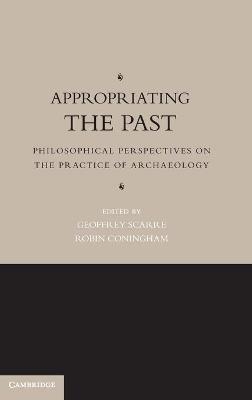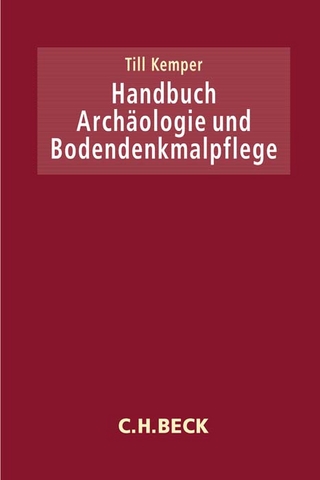
Appropriating the Past
Cambridge University Press (Verlag)
978-0-521-19606-2 (ISBN)
In this book an international team of archaeologists, philosophers, lawyers and heritage professionals addresses significant ethical questions about the rights to access, manage and interpret the material remains of the past. The chapters explore competing claims to interpret and appropriate the past and the major ethical issues associated with them, including handling the sacred; contested rights over sites, antiquities and artifacts; the involvement of local communities in archaeological research; and the legal status of heritage sites. The book covers a range of hotly debated topics in contemporary archaeological practice, focusing particularly on the relationship between academic archaeologists and indigenous communities for whom the material remnants of the past that form the archaeological record may be part of a living tradition and anchors of social identity.
Geoffrey Scarre is Professor of Philosophy at Durham University and the co-founder and director of the Durham University Centre for the Ethics of Cultural Heritage. He is the editor (with Chris Scarre) of The Ethics of Archaeology: Philosophical Perspectives on Archaeological Practice and author of several books including, most recently, Death, Mill's 'On Liberty': A Reader's Guide and On Courage. Robin Coningham is Pro-Vice Chancellor and Professor of Archaeology at Durham University and co-founder of the Durham University Centre for the Ethics of Cultural Heritage. Active as a field archaeologist in South Asia and Iran, he currently leads a UNESCO archaeological team which is excavating inside the temple of the Buddha's birth at Lumbini in Nepal.
1. Introduction Geoffrey Scarre and Robin Coningham; Part I. Claiming the Past: 2. The values of the past James O. Young; 3. Whose past? Archaeological knowledge, community knowledge, and the embracing of conflict Piotr Bienkowski; 4. The past people want: heritage for the majority? Cornelius Holtorf; 5. The ethics of repatriation: rights of possession and duties of respect Janna Thompson; 6. On archaeological ethics and letting go Larry J. Zimmerman; 7. Hintang and the dilemma of benevolence: archaeology and ecotourism in Laos Anna Källén; Part II. Problems of Meaning and Method: 8. What is a crisis of intelligibility? Jonathan Lear; 9. Contesting religious claims over archaeological sites Elizabeth Burns Coleman; 10. Multivocality and 'wikiality': the epistemology and ethics of a pragmatic archaeology Alexander A. Bauer; 11. 'Do not do unto others …': cultural misrecognition and the harms of appropriation in an open-source world George P. Nicholas and Alison Wylie; 12. Should ruins be preserved? David E. Cooper; Part III. Problems of Ownership and Control: 13. Legal principles, political processes, and cultural property Tom Allen; 14. Monuments versus movables: state restrictions on cultural property rights David Garrard; 15. Looting or rededication? Buddhism and the expropriation of relics Robin Coningham and Prishanta Gunawardhana; 16. Partitioning the past: India's archaeological heritage after independence Nayanjot Lahiri.
| Erscheint lt. Verlag | 12.11.2012 |
|---|---|
| Zusatzinfo | 5 Halftones, unspecified |
| Verlagsort | Cambridge |
| Sprache | englisch |
| Maße | 151 x 235 mm |
| Gewicht | 680 g |
| Themenwelt | Geisteswissenschaften ► Archäologie |
| ISBN-10 | 0-521-19606-X / 052119606X |
| ISBN-13 | 978-0-521-19606-2 / 9780521196062 |
| Zustand | Neuware |
| Haben Sie eine Frage zum Produkt? |
aus dem Bereich


